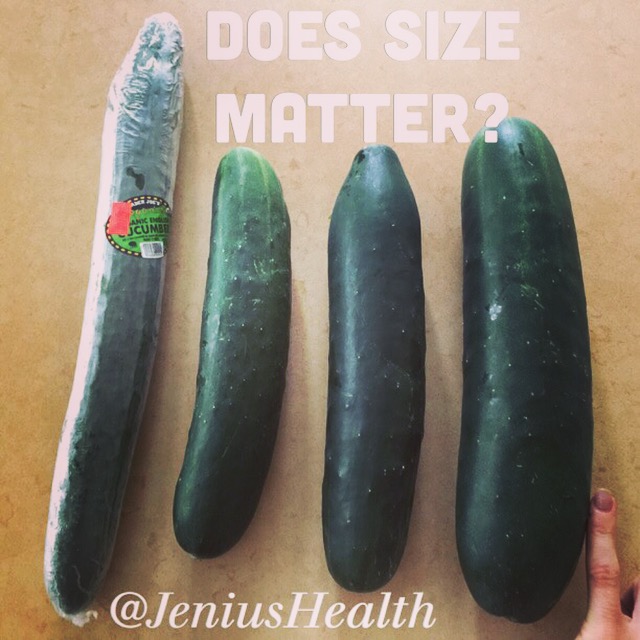Do you want eggs that look like this??
How To Boil Eggs:
- Fill sauce pan a little more then half way. (I use my filtered water)
- Cover pot and bring to a rapid boil.
- Use a large spoon or wooden ladle to gently set your eggs, one at a time into the pot. I usually set up the spoon in the pot and then add one egg after another, without removing the spoon and the eggs just move down and around. Just get them in the pot without cracking them, however you do!
- Set timer for 6 minutes. (after ALL eggs are in…it’s okay to go to 6:30 not to be less then 6:00)

- After 6 minutes remove from heat, drain the water, add ice and cold water, if the water quickly becomes hot, drain the water and add more ice. (VERY IMPORTANT to cool IMMEDIATELY or they will still be cooking)
- Eggs are perfectly soft boiled with a little bit of runny yolk! mmmm…my favorite!
- Enjoy eggs or store them for later. I put my eggs back in the carton and label it appropriately so you know which ones are soft boiled.
Eggs are amongst one of the most nutritious foods and I personally find them delicious.
What Are The Health Benefits Of EGGS???
1. Eggs Are Incredibly Nutritious
A whole egg contains all the nutrients required to turn a single cell into a baby chicken.
A single large boiled egg contains:
- Vitamin A: 6% of the RDA.
- Folate: 5% of the RDA.
- Vitamin B5: 7% of the RDA.
- Vitamin B12: 9% of the RDA.
- Vitamin B2: 15% of the RDA.
- Phosphorus: 9% of the RDA.
- Selenium: 22% of the RDA.
- Eggs also contain decent amounts of Vitamin D, Vitamin E, Vitamin K, Vitamin B6, Calcium and Zinc.
This is coming with 77 calories, 6 grams of protein and 5 grams of healthy fats.
Eggs also contain various other trace nutrients that are important for health.
Really… eggs are pretty much the perfect food, they contain a little bit of almost every nutrient we need.
If you can get your hands on pastured or Omega-3 enriched eggs, then these are even better. They have more Omega-3s and are much higher in Vitamin A and E.
Bottom Line: Whole eggs are among the most nutritious foods on the planet, containing a little bit of almost every nutrient we need. Omega-3 enriched and/or pastured eggs are even healthier.
2. Eggs Are High in Cholesterol, But Don’t Adversely Affect Blood Cholesterol
It is true that eggs are high in cholesterol.
In fact, a single egg contains 212 mg, which is over half of the recommended daily intake of 300 mg.
However… it’s important to keep in mind that cholesterol in the diet doesn’t necessarily raise cholesterol in the blood.
The liver actually produces large amounts of cholesterol every single day. When we eat more eggs, the liver just produces less cholesterol instead, so it evens out .
The response to egg consumption varies between individual:
- In 70% of people, eggs don’t raise cholesterol at all.
- In the other 30% (termed “hyper responders”), eggs can mildly raise Total and LDL cholesterol.
However, as I will outline later in the article, the situation is a bit more complicated than that and these changes are actually beneficial.
(Exceptions… people with genetic disorders like familial hypercholesterolemia or a gene type called ApoE4 may want to minimize or avoid eggs.)
Bottom Line: Eggs are high in cholesterol, but eating eggs does not have adverse effects on cholesterol in the blood for the majority of people.
3. Eggs Raise HDL (The “Good”) Cholesterol
HDL stands for High Density Lipoprotein. It is often known as the “good” cholesterol.
People who have higher levels of HDL usually have a lower risk of heart disease, stroke and various health problems
Eating eggs is a great way to increase HDL.
In one study, 2 eggs per day for 6 weeks increased HDL levels by 10% .
Bottom Line: Egg consumption consistently leads to elevated levels of HDL (the “good”) cholesterol, which is linked to a reduced risk of many diseases.
4. Eggs Contain Choline – an Important Nutrient That Most People Don’t Get Enough of
Choline is a nutrient that most people don’t even know exists.
Yet, it is an incredibly important substance and is often grouped with the B vitamins.
Choline is used to build cell membranes and has a role in producing signaling molecules in the brain, along with various other functions.
Dietary surveys have shown that about 90% of people in the U.S. are getting less than the recommended amount of choline.
Whole eggs are an excellent source of choline. A single egg contains more than 100 mg of this very important nutrient.
Bottom Line: Eggs are among the best dietary sources of choline, a nutrient that is incredibly important but most people aren’t getting enough of.
5. Eggs Turn LDL Cholesterol From Small, Dense to Large, Linked to a Reduced Risk of Heart Disease
LDL cholesterol is generally known as the “bad” cholesterol.
It is well known that having high levels of LDL is linked to an increased risk of heart disease.
But what many people don’t realize is that there are subypes of LDL that have to do with the size of the particles.
There are small, dense LDL particles and then there arelarge LDL particles.
Many studies have shown that people who have predominantly small, dense LDL particles have a higher risk of heart disease than people who have mostly large LDL particles.
Even if eggs tend to mildly raise LDL cholesterol in some people, studies show that the particles change from small, dense to large LDL… which is a good thing.
Bottom Line: Egg consumption appears to change the pattern of LDL particles from small, dense LDL (bad) to large LDL, which is linked to a reduced heart disease risk.
6. Eggs Contain Lutein and Zeaxanthin, Antioxidants That Have Major Benefits For Eye Health
One of the consequences of ageing is that eyesight tends to get worse.
There are several nutrients that help counteract some of the degenerative processes that can affect our eyes.
Two of these are called Lutein and Zeaxanthin, powerful antioxidants that tend to build up in the retina of the eye.
Studies show that consuming adequate amounts of these nutrients can significantly reduce the risk of cataracts and macular degeneration, two very common eye disorders.
Egg yolks actually contain large amounts of both Lutein and Zeaxanthin.
In one controlled trial, eating just 1.3 egg yolks per day for 4.5 weeks increased blood levels of Lutein by 28-50% and Zeaxanthin by 114-142%.
Eggs are also high in Vitamin A, which deserves another mention here. Vitamin A deficiency is the most common cause of blindness in the world.
Bottom Line: The antioxidants Lutein and Zeaxanthin are very important for eye health and can help prevent macular degeneration and cataracts. Eggs are high in both of them.
7. In the Case of Omega-3 or Pastured Eggs, They Lower Triglycerides as Well
Of course, it doesn’t just matter what we eat… it also matters what the foods that we eat, ate.
In this regard, not all eggs are created equal. Their nutrient composition varies depending on how the hens were fed and raised.
Eggs from hens that are raised on pasture and/or fed Omega-3 enriched feeds tend to be much higher in Omega-3 fatty acids.
Omega-3 fatty acids are known to reduce blood levels of triglycerides, a well known risk factor for heart disease .
Studies show that consuming Omega-3 enriched eggs is a very effective way to reduce triglycerides in the blood. In one of the studies, just 5 omega-3 enriched eggs per week for 3 weeks reduced triglycerides by 16-18%.
Bottom Line: Omega-3 enriched and pastured eggs contain significant amounts of Omega-3 fatty acids. Eating these types of eggs is an effective way to reduce blood triglycerides.
8. Eggs Are High in Quality Protein, With All The Essential Amino Acids in The Right Ratios
Proteins are the main building blocks of the human body.
They’re used to make all sorts of tissues and molecules that serve both structural and functional purposes.
Getting enough protein in the diet is very important and studies show that currently recommended amounts may be too low.
Well… eggs are an excellent source of protein, with a single large egg containing 6 grams.
Eggs contain all the essential amino acids in the right ratios, so our bodies are well equipped to make full use of the protein in them.
Eating adequate protein can help with weight loss increase muscle mass, lower blood pressure and optimize bone health… to name a few
Bottom Line: Eggs are fairly high in quality animal protein and contain all the essential amino acids that humans need.
9. Eggs do NOT Raise Your Risk of Heart Disease and May Reduce The Risk of Stroke
For many decades, eggs have been unfairly demonized.
It has been claimed that because of the cholesterol in them, they must be bad for the heart.
Many studies published in recent years have examined the relationship between egg consumption and the risk of heart disease.
In one review of 17 studies with a total of 263,938 participants, no association was found between egg consumption and heart disease or stroke.
Many other studies have led to the same conclusion.
However… some studies have found that people with diabetes who eat eggs have an increased risk of heart disease.
Whether the eggs are actually causing the increased risk isn’t known, because these types of studies can only show statistical association. They can not prove that eggs caused anything.
It is possible that diabetics who eat eggs are less health conscious, on average.
On a low-carb diet, which is by far the best diet for diabetics, eating eggs leads to improvements in risk factors for heart disease. However, there are lots of other things diabetics can eat so if a diabetic wanted to avoid eggs in their diet, they could quite easily.
Bottom Line: Many studies have looked at egg consumption and the risk of heart disease and found no association. However, some studies have found an increased risk in people with type 2 diabetes.
10. Eggs Are Highly Fulfilling and Tend to Make You Eat Fewer Calories, Helping You to Lose Weight
Eggs are incredibly fulfilling.
They are a high protein food… but protein is by far the most fulfilling macronutrient.
Eggs score high on a scale called the satiety index, which measures the ability of foods to induce feelings of fullness and reduce subsequent calorie intake.
In one study of 30 overweight women, eating eggs instead of bagels for breakfast increased feelings of fullness and made them automatically eat fewer calories for the next 36 hours.
In another study, replacing a bagel breakfast with an egg breakfast caused significant weight loss over a period of 8 weeks.
How Many Eggs Can Safely Be Eaten?
The studies clearly show that eating up to 3 whole eggs per day is perfectly safe.
There is no evidence that going beyond that is harmful, it is just “uncharted territory” as it hasn’t been studied.
Nutrition facts from http://authoritynutrition.com/10-proven-health-benefits-of-eggs/























[…] I like that are easy to grab! My favorites are grape tomatoes, red bell pepper slices, cucumbers, medium boiled eggs, and sliced carrots(NOT baby carrots.) Then I tell myself I have to eat the entire supply of good […]